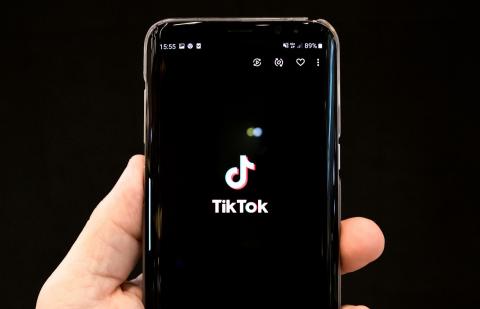Photo by Olivier Bergeron on Unsplash
The latest findings from Pew Research Center indicate that over a majority of Americans (54%) "at least sometimes" get their news from social media, which the group says is up slightly from recent years.
Notably, the number of US adults who say they "often" get news from social media is up two percentage points from 2020 to a quarter of respondents -- a number that dropped to 17% in 2022.

Some social media sites and apps have seen a substantial increase in regular use for news consumption among all US adults. YouTube, for example, jumped from 23% in 2020 to 32% in 2024.
YouTube is now about even with Facebook for "regular" news consumption. Instagram went from 11% to 20%, and TikTok saw the biggest increase among US adults, from an obscure 3% to a noteworthy 17% (higher than X).
This looks at the US adult population at large. When the numbers are broken down by users, more than half (52%) of TikTok users get news from the app, which increased from 22% in 2020.
Approximately 170 million Americans have TikTok accounts, which means many US adults regularly get news from the site. However, it is easy to forget that Biden signed a TikTok ban into law earlier this year.
It's not an immediate ban. TikTok remains accessible in the US. However, the company has been given a deadline to divest from its Chinese-based parent company, ByteDance, by January.
If it doesn't, US-based companies with app services, like Apple and Google, will be ordered to stop supporting TikTok, which means users will not have access to updates.
The issue surrounding TikTok has raised a question of security versus free speech.
The bill Biden signed was one of several that were introduced. HR 7521, which passed the House, not only threatened to ban TikTok but gave the president the authority to force foreign-owned social media companies to divest
And the president could determine what “qualified divestiture" meant and could designate any social media app as “subject to the control of a foreign adversary."
The bill's supporters argued it was a matter of national security. “This is my message to TikTok: break up with the Chinese Communist Party or lose access to your American users,” said US Rep Mike Gallagher.
Lawmakers raised concerns that the CCP has easy access to American data through TikTok, which maintains a headquarters in Singapore. However, TikTok has long promised that American data is safe.
TikTok says it has even invested billions of dollars to house American data in the US. The company states:
"TikTok’s parent company, ByteDance, was founded by Chinese entrepreneurs. ByteDance is a privately-held global company, roughly 60 percent owned by global institutional investors (such as Blackrock, General Atlantic, and Susquehanna International Group), 20 percent owned by the company’s founders, and 20 percent owned by its employees—including over 7,000 U.S.-based employees. It is not owned or controlled by any government or state-controlled entity."
Opponents of the bill not only pointed to a lack of evidence that there is any link between TikTok and the CCP, but also raised concerns over engaging in the type of censorship regularly seen from the CCP.
US Rep Jim Himes of the House Intelligence Committee said adversarial companies "shut down newspapers, broadcast stations, and social media platforms. We do not."
HR 7521 has not advanced in the Senate, but a probable ban was passed and signed into law and is now before the courts as TikTok argues for the First Amendment rights of US citizens.
A Pew poll from September 5 found that 32% of Americans support banning the app.
Based on the latest data, banning TikTok would take away a news source for many Americans, and while there are other options, many people appreciate that the app offers information outside the echo chambers of the national press.
However, when voters mobilized to show their support for TikTok, lawmakers in Congress said it was an example of how the app could be "weaponized" instead of listening to their constituents.
Some offices were so annoyed that their constituents wanted to express their objection to the ban that they shut off the phones in their offices. (A true story reported by AP.)
The question is: Where will the nearly 20% of US adults who currently get news from TikTok go if/when it's banned? These are voters who were already looking for a different source than mainstream options
